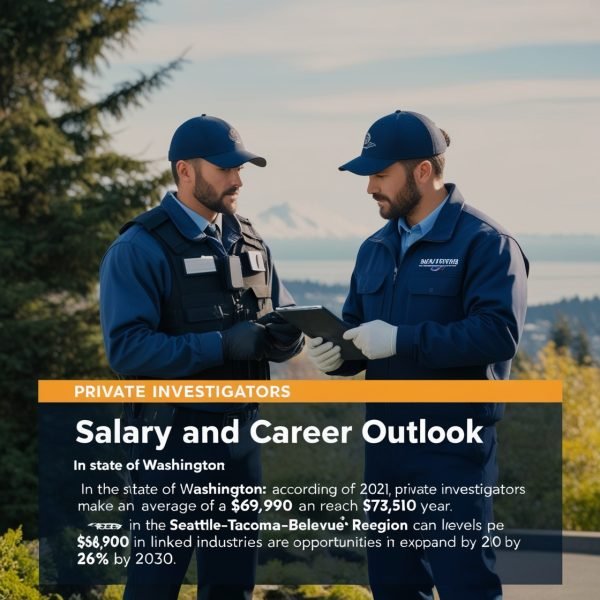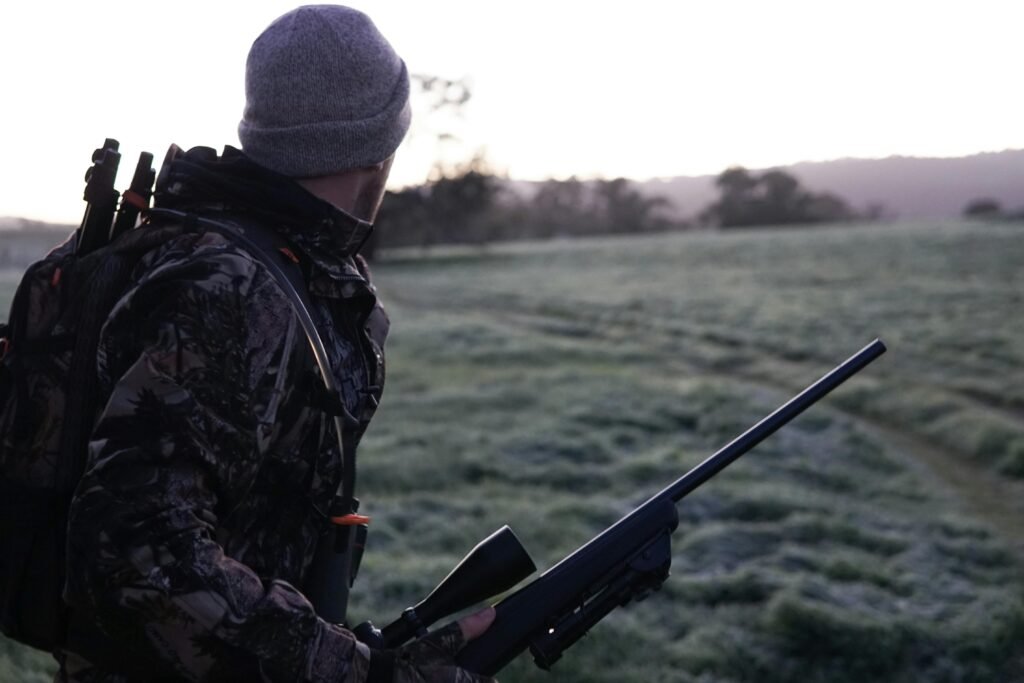How to Become a Bounty Hunter in Washington State: Your Ultimate Guide
You’ve come to the correct site if you’ve ever wondered about a career as a bounty hunter in Washington State. Bounty hunters, also referred to as bail bond recovery agents, are essential to the legal system because they find people who post bail and then fail to appear in court. This profession offers a distinctive method to work in law enforcement without becoming a police officer, and it is equally thrilling and difficult.
However, pursuing fugitives isn’t the only aspect of being a bounty hunter in Washington. To operate lawfully, you must abide by certain state requirements. Let’s go over everything you need to know, including advice on how to succeed in this field and license needs.
Table of Contents
ToggleWhat is the role of a bounty hunter?
Bail bond businesses employ bounty hunters to track down and return individuals who do not show up for court. This function helps guarantee that fugitives fulfill their legal obligations and that bail bond providers do not suffer financial losses.
The Washington State Department of Licensing (DOL) oversees this profession in Washington State and has stringent criteria for anyone wishing to work in it. It’s time to discover what it takes to succeed at bounty hunting if you’re prepared to take on its obstacles.
How to Become a Bounty Hunter in Washington State
It takes planning, training, and fulfilling legal requirements to become a bounty hunter; it’s not as easy as just showing up on the scene. To begin, take these actions:

1. Verify Your Abilities
Make sure you fulfill the following prerequisites before embarking on your journey:
- Age: You must be at least 21 years old.
- Citizenship: To work in the United States, you must be a citizen or have legal permission to do so.
- Education:
- A GED or high school diploma is required.
- As an alternative, three years of experience working in the bail bond sector may potentially make you eligible.
- Criminal History: There must be no felony convictions or disqualifying misdemeanor convictions on the applicant’s record.

2. Complete Mandatory Training
In Washington, being a bail bond recovery agent needs 32 hours of specialized training. The following topics are covered in this training:
- Criminal and Civil Law: Find more about your rights and restrictions regarding bounty hunting’s legal implications.
- Field Operations: Receive practical instruction in tracking methods, surveillance, and safe fugitive capture.
- Firearms Training: Along with other defensive weapons like pepper spray, batons, and tasers, you will learn how to handle firearms.
Important: A qualified Criminal Justice instruction Commission (CJTC) instructor must teach firearms instruction, and all coursework must be finished within a year prior to submitting an application for a license.

3. Get a Concealed Pistol License (CPL)
To lawfully carry a firearm while working as a bounty hunter in Washington, you must have a concealed pistol license (CPL). How to get one is as follows:
- Apply Locally: Send in your application to the sheriff’s office or police department in your community.
- Background Check: The procedure will include a thorough background check on you.
- Fees: Pay the necessary fees, which differ according on where you live.
Remember to renew your CPL before it expires, as it is valid for five years.

4. Pass the Bail Bond Recovery Agent Exam
You will need to pass the Washington State licensing exam after completing your course. This test assesses your understanding of bounty hunting regulations and protocols. This is what to anticipate:
- There are fifty multiple-choice questions on the test.
- To pass, you must receive a minimum score of 85%.
- You can repeat the test for a nominal price (now $25 as of May 2022) if you fail it the first time.

5. Submit Your Application
You are prepared to send your application to the Washington State Department of Licensing after passing the test. Remember to include:
- evidence of finished education and credentials.
- For a criminal history check, your fingerprint card.
- a duplicate of your concealed handgun permit.
- CJTC certification for guns.
- As of May 2022, the application price is $450.

6. Receive Your License
Your license will be issued to you following the DOL’s processing of your application. Remember:
- The license needs to be renewed every year, and there is a $475 renewal charge.
- Although it’s not necessary, it’s a good idea to keep up with legislative developments and industry best practices.

What Skills Do You Need to Succeed as a Bounty Hunter?
Being a successful bounty hunter isn’t just about meeting legal requirements. Here are some key skills to develop:
- Investigation Skills: You’ll need to be adept at conducting surveillance, obtaining information, and following people.
- Physical Fitness: Maintaining excellent health and stamina is crucial because the job can be physically taxing.
- Legal Knowledge: Because the work can be physically demanding, maintaining good health and endurance is essential.
- Negotiation: Managing fugitives frequently calls for tolerance and the capacity to diffuse heated situations.

Do You Need a Degree?
No, you may work as a bounty hunter in Washington without a degree. Nonetheless, obtaining a degree in criminal justice or a similar discipline can improve your chances of landing a job. The following educational institutions in Washington provide criminal justice programs:
- Bellevue, Washington’s Bellevue College
- Everett, Washington’s Everett Community College
- Gonzaga College in Spokane, Washington
- Pierce University in Lakewood, Washington

Job Opportunities and Networking Tips
Having the correct contacts can make it easier to begin your bounty hunting profession. To begin, follow these steps:
- Apprenticeships: Gain experience by assisting seasoned bail bond companies or bounty hunters.
- Join Associations: Job openings, resources, and networking opportunities are offered by groups such as the Washington State Bail Agents Association (WSBAA).
- Promote Yourself: When contacting bail bond businesses, emphasize your education, credentials, and abilities.

Salary and Career Outlook
Although precise pay information for bounty hunters is not kept track of, comparable occupations such as private investigators might offer valuable perspectives. In the state of Washington:
- According to research from 2021, private investigators make an average of $69,990 annually.
- Salary levels in the Seattle-Tacoma-Bellevue region can reach $73,510 per year.
- This is a promising career choice because job opportunities in linked industries are predicted to expand by 20.6% by 2030.
FAQ
- Is bounty hunting legal in Washington State?
Yes, but you have to get a license from the Washington DOL and adhere to stringent rules. - Can bounty hunters carry firearms?
Yes, but only after completing certified weapons training and holding a current concealed pistol license (CPL). - How long does it take to become a bounty hunter?
Depending on how soon you finish your training and pass the licensure exam, the process usually takes a few months to a year.
Conclusion
For those who are prepared to put in the effort, becoming a bounty hunter in Washington State is a fulfilling vocation. You can succeed in this fascinating career if you finish the required coursework, obtain your license, and develop the appropriate abilities. Bounty hunting in Washington is both difficult and rewarding because of the state’s distinctive geography, which includes large open expanses and close proximity to neighboring states and Canada. if you need more info about hunting, please visit our websites guide and reviews.

